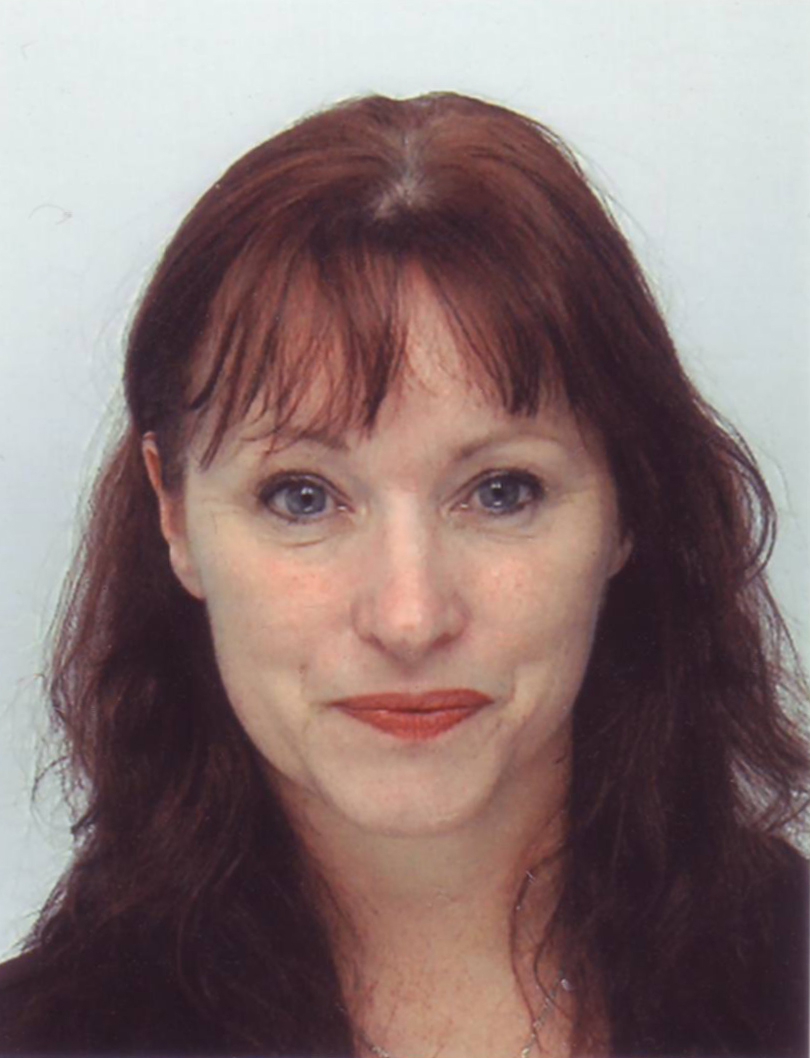Minority voices in Upper Egypt
A publisher in Luxor who happens to be Christian shows how Egypt's majority and minorities, despite growing tension, share similar dreams and fears.
Wednesday 19 September 2012

In Luxor, I caught up with Mena Melad, the editor-in-chief and owner of Luxor Times, a glossy magazine and newspaper for Luxor's English-speaking community. The publication is targeted at expats and tourists, and covers local issues, archaeology, the arts and current events. Melad is also from the Catholic community, a minority among Egyptian Christians, with the majority being Copts. I had not realised there was an Egyptian Catholic community, and so my curiosity was piqued.
I arranged to meet Melad and another member of the Catholic community, a local bus driver, to get their thoughts on post-revolution Egypt. Melad is young, sharp, educated and very much reflects the new generation in Egypt: hungry for change and desperate to modernise his country.
His frustration at the system, and the slow pace of change since the revolution began. “Laws area not being implemented. Rubbish is piling up everywhere and no one does anything about it. The crime rates are going up but the police don't want to upset anyone and cause another riot. People expect things to be done for them,” complains Melad. “A group of us went out into the villages and helped with trash collection, showing the villagers how to recycle, what to separate out, and how to bag up their trash for collection. We did that for a couple for weeks to get it going but when we went back a few weeks later, it was back to being strewn everywhere and just tossed out of windows.”
His despair and frustration were obvious. The mountain that stands before him and before Egypt is not just a matter of voting in a new government, it is the massive process of slowly turning around how a population thinks. People are used to paternalistic rule. Individual and communal responsibility had been ruthlessly engineered out of society's grassroots in the past in order to dis-empower the population, so it will take a long time for the people to recover.
Melad talked at length about local resources, unregulated construction and the fragility of the Nile itself. To illustrate, he took us out onto the west bank so that I could see for myself. Business people and some expats had taken advantage of the political turmoil and the subsequent lull in law enforcement to throw up apartment buildings to sell at inflated prices (by Egyptian standards) to foreigners looking for a cheap holiday home. I was appalled at what he showed me.
Gaps of land in between the regular buildings had been filled with new apartment blocks, pushed cheek to jowl against existing homes, cutting off any views or privacy the existing residents may have had. The roving editor also showed me how precious agricultural land, necessary for growing food crops, had been built on indiscriminately.
“There are available building plots further inland, and that is where any expansion should be. This land, close to the Nile, is needed for growing food; this land is precious and is already under strain. We could have sustainable housing 5km away from the Nile, we should not build near the Nile,” he pointed out.
We then moved on to Luxor, and the political and communal uncertainties brought about by the revolution. The bus driver expressed his worries: “As a Catholic, I am already a minority within a minority, and it worries me. Will my community suffer discrimination? Will we get fair [treatment from] the authorities if they are run by an Islamic group? Will we get fair justice? Will we get fair arbitration with local conflicts? Or will we become second class citizens?”
I could see his fears really troubled him. He was a quiet, gentle man struggling to provide for his family. He told me how his income had dropped considerably as work dried up. No one had money to spend, and now because of the relative lawlessness, he was afraid to work late at night in case his bus was stolen from him or his earnings robbed. He was very concerned for the future of his young children and his ability to provide for them.
“We need order restored, we need the police to [serve] us, not just the tourists, and we need local government to start doing its job,” the bus driver urged.
I asked Melad about the future of the governorship of Luxor under the new government as there was an impending reshuffle. What did he think would be a good way forward in the future? What qualities did he think a future governor would need? Melad thought it important that a future governor would be “an outsider to Luxor. ” I asked him why? I would have thought someone local who knew the community well, who knew its needs and its problems intimately, would be more helpful.
“Yes, that is a good point,” he said. “But we are worried about the issue of tribal allegiance. If we get a local, there will be the risk of getting someone who gives more attention to his extended family and community rather than the whole of Luxor.”
That was a good point and one I had not thought of.
Melad went on to tell me about a local organisation that had grown in Luxor, The Love of Egypt. This group of young people of all different faiths and backgrounds come together to discuss the community's problems and try to find joint solutions. It sounded like the younger generation in Luxor were really on the ball and taking an active role in birthing a new Egypt.
I asked him what he thought the most pressing problems were that faced the communities in Luxor. He was very clear: “Clean water, proper sewage processing, decent education and proper medical facilities. We need people to do their jobs in these areas too. Often these days, people do not want to put in a hard days work, they all want to work in offices, come into work at 11am and leave at 2pm.”*
I then asked him about what he'd like to see develop in Egypt as a whole: “Decent quality education. We have quantity but not quality. In the state schools, the supplies that children have to buy are expensive for them, and the method of teaching used is not that good. Then they can leave school at 11 or 12, which is not enough. But they want to leave at that age, they want to be grown up. We need to encourage them to stay on to high school.”
Melad also wished to see greater transparency and freedom. “I want freedom of information, like you have in the UK, freedom of speech and no corruption in authority. The internet has enabled us to see what other countries have and we want those things too,” the young journalist added.
This highlighted something that I had previously been unaware of. There is an image in the minds of young Egyptians who had not travelled much or at all of places like the UK being bastions of real free speech, of no corruption, and of fair wealth distribution. Although the UK is not suffering the problems of Egypt, it certainly has its own skeletons rattling away in the cupboard.
I came away from the meetings with Mena Melad with a sense of real hope: there was a bright energy in young Egyptians like him, a drive for a better world, and an intelligent awareness of their own community. It struck me that the opinions, aspirations and fears that Melad, as a Catholic, had shared with me were the same as those that members of the Muslim community had also shared. Let's hope they work together towards them, with respect and the mutual admiration that each part of Luxor's rich communal tapestry deserves.
This is part of a series of articles on Egypt's political transformation as seen from the rural and provincial grassroots. Below is the full list of articles in the series:
1. Egypt without the hype… and away from Cairo
2. Egypt needs are human, social and educational, not religious, says Islamist MP
3. Minority voices in Upper Egypt
* This paragraph was amended on 24 September 2012 to remove a factual error.



HI Connie. The interview was taken this summer. My mistake regarding
the Luxor Governor, I misunderstood a conversation regarding the future
of the Governor and possibility of a shake up (not a conversation with
Mena). My apologies.
Mena and I did talk about the future/ role of
the Governor position, but it was a discussion about what
lay
in the future at the time of the interview, there was great uncertainty
and possibility of shake ups with the Governors in Egypt. In my notes,
the two different discussions got mashed together.
Connie, I am not sure what ‘fears’ this article
plays to, the concerns expressed are ongoing community/social issues of the sort to be expected after a major revolution.
Yes
people on the street did voice concerns and my job is to report and
reflect upon those concerns, with hope in raising positive discussion. I
saw for myself a lot of what was involved in the discussions and I
doubt all the problems have been solved in 8 weeks.
Most of what I
came across in my visits was positive in the deeper sense, of political,
social and religious dialogue/development. But there are still huge
issues that Egypt faces and pretending they are not there or not
allowing local people to voice their concerns I feel is not a healthy
way forward. If you look through my various articles, I write about what
an inspiring place Luxor is to visit, and how the community as a whole
has made some excellent strides forward through the revolution. I think
the comments and concerns people voiced are more a indication of where
the community itself is starting to look at what needs fixing and why.
Josephine Littlejohn
HI Connie. The interview was taken this summer. My mistake regarding
the Luxor Governor, I misunderstood a conversation regarding the future
of the Governor and possibility of a shake up (not a conversation with
Mena). My apologies. Mena and I did talk about the future/ role of
the Governor position, but it was a discussion about what
lay in the future at the time of the interview, there was great uncertainty and possibility of shake ups with the Governors in Egypt. In my notes, the two different discussions got mashed together.
Connie, I am not sure what ‘fears’ this article
plays to, the concerns expressed are ongoing community/social issues of the sort to be expected after a major revolution.
Yes people on the street did voice concerns and my job is to report and reflect upon those concerns, with hope in raising positive discussion. I saw for myself a lot of what was involved in the discussions and I doubt all the problems have been solved in 8 weeks.
Most of what I came across in my visits was positive in the deeper sense, of political, social and religious dialogue/development. But there are still huge issues that Egypt faces and pretending they are not there or not allowing local people to voice their concerns I feel is not a healthy way forward. If you look through my various articles, I write about what an inspiring place Luxor is to visit, and how the community as a whole has made some excellent strides forward through the revolution. I think the comments and concerns people voiced are more a indication of where the community itself is starting to look at what needs fixing and why.
Josephine Littlejohn